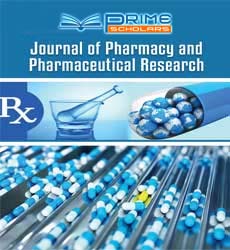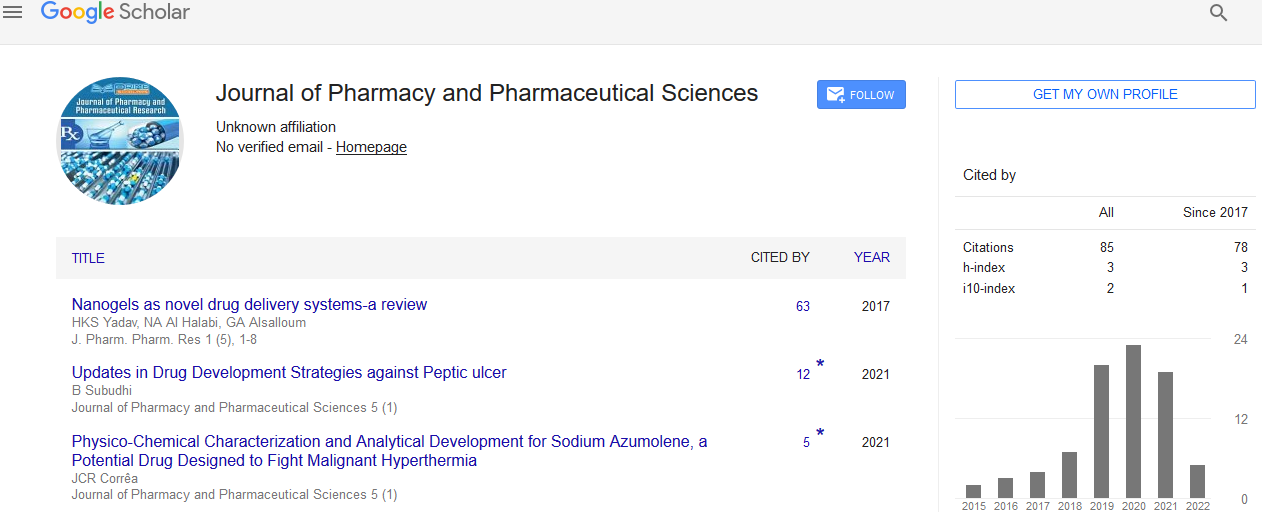Perspective - (2023) Volume 7, Issue 3
Clinical Pharmacology: Bridging Science and Medicine for Safer Treatment
Sonia Iva*
Department of Medicine, University of Colorado School of Medicine, USA
*Correspondence:
Sonia Iva,
Department of Medicine, University of Colorado School of Medicine,
USA,
Email:
Received: 29-Aug-2023, Manuscript No. IPIPR-23-18168;
Editor assigned: 31-Aug-2023, Pre QC No. IPIPR-23-18168 (PQ);
Reviewed: 14-Sep-2023, QC No. IPIPR-23-18168;
Revised: 19-Sep-2023, Manuscript No. IPIPR-23-18168 (R);
Published:
26-Sep-2023, DOI: 10.21767/ipipr.7.03.028
Introduction
Clinical pharmacology, a dynamic and vital discipline at the crossroads
of medical science and drug development, plays a pivotal
role in ensuring the safety and efficacy of medications. In this article,
we will delve into the intricacies of clinical pharmacology, its
significance in modern medicine, and the ways in which it contributes
to patient well-being. Clinical pharmacology is a branch of
pharmacology that emphasizes the rational use of drugs and therapeutic
approaches to optimize patient outcomes. Its core objectives
include: Clinical pharmacologists rigorously assess new and
existing drugs to determine their effectiveness in treating specific
medical conditions, as well as the risks associated with their use.
By considering factors such as genetics, age, sex, and individual
responses, clinical pharmacologists tailor drug regimens to meet
the unique needs of patients.
Description
Clinical pharmacologists strive to establish the right dose of a drug
to maximize its therapeutic benefit while minimizing side effects
and toxicity. This specialized field focuses on the interaction between
drugs and the human body, facilitating the translation of
laboratory discoveries into clinical practice. They identify potential
drug interactions and adverse effects, which is vital in preventing
medication-related harm and ensuring patient safety. Clinical
pharmacologists bridge the gap between laboratory research and
clinical trials, ensuring that promising drug candidates are safe and
effective for human use.
Clinical pharmacology is essential for the design and execution of
clinical trials, helping bring new drugs from the research lab to
the patient’s bedside. It plays a critical role in evaluating a drug’s
safety, efficacy, and dosage. The field is a cornerstone of precision
medicine, aiming to tailor treatments to individual genetic and
physiological characteristics, allowing for more effective and safer
therapy. Clinical pharmacologists monitor the long-term safety
and effectiveness of drugs, identifying and managing any potential
issues as they arise. Regulatory agencies, such as the FDA in the
United States and the EMA in Europe, rely on clinical pharmacology
data to make informed decisions about the approval, labeling,
and safe use of medications. Clinical pharmacology faces several
challenges in an ever-evolving healthcare landscape: The development
of novel therapies, including biologics and gene-based treatments,
presents new challenges for assessing safety and efficacy.
The diversity of patient populations requires more comprehensive
approaches to tailor treatments effectively, making precision medicine
and individualized drug regimens increasingly critical.
Conclusion
The integration of big data and AI tools is expected to revolutionize
clinical pharmacology, providing deeper insights into drug interactions,
genetic variations, and therapeutic responses. Ensuring
that regulatory processes keep pace with scientific advancements
is a critical aspect of the field’s development. Clinical pharmacology
stands as a cornerstone in modern medicine, guiding the safe
and effective use of medications, personalizing treatments, and
advancing drug development. As we continue to witness breakthroughs
in the life sciences, the role of clinical pharmacology
becomes increasingly indispensable in realizing the full potential
of these innovations for the benefit of patient health and well-being.
This dynamic discipline embodies the harmonious fusion of
science and medicine and remains a driving force in the ongoing
quest for safer and more effective treatments.
Citation: Iva S (2023) Clinical Pharmacology: Bridging Science and Medicine for Safer Treatment. J Pharm Pharm Res. 7:028
Copyright: © 2023 Iva S. This is an open-access article distributed under the terms of the Creative Commons Attribution License, which permits unrestricted use, distribution, and reproduction in any medium, provided the original author and source are credited

